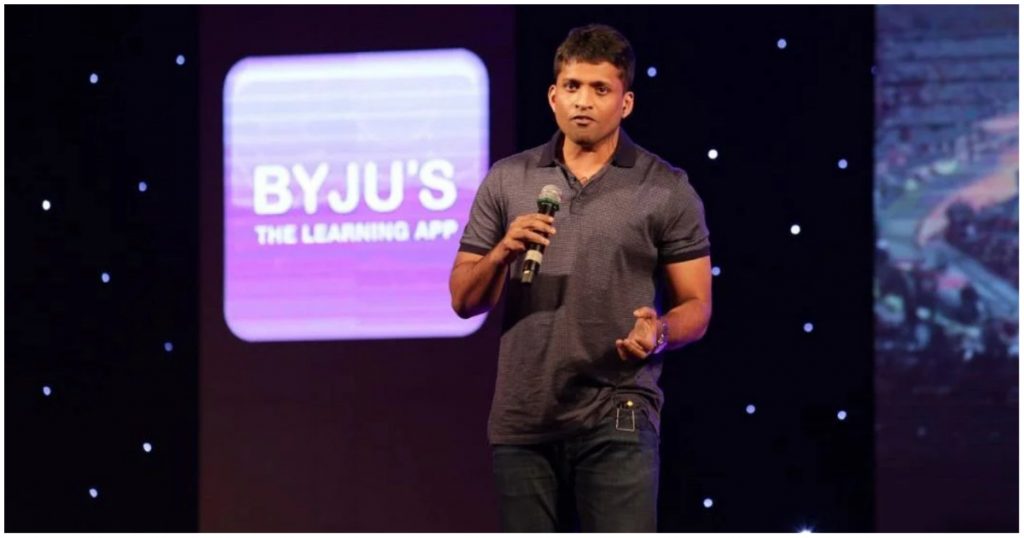Byju’s is staring at the bottom of the barrel, but its founder is still trying desperate to try to turn things around.
Byju’s founder Byju Raveendran has pledged his homes worth Rs. 100 crore to pay employee salaries, Bloomberg reports. It had been reported two days ago that Byju’s had delayed its November salaries to around 1,000 employees. The latest reports suggest that this money that Raveendran has raised through pledging his homes will be used to pay employee salaries.

The properties pledged include two houses owned by Byju Raveendran’s family, and an under-construction villa in Bengaluru. The villa is being built in Epsilon, a plush gated community that’s home to several other prominent entrepreneurs. The properties have been collectively pledged for Rs. 100 crore.
Byju’s had earlier attributed the delayed salaries to a “technical glitch”. “We have noticed a delay in processing salary for some limited employees (<5%) due to an unexpected technical glitch,” Byju’s said in a statement two days aago. “The issue is being rectified over the weekend and payment will be processed by Monday,” it added.
Byju’s has been in plenty of trouble of its own over the last few quarters. It had delayed filing its FY21 financial results for so long that even the Indian government commented on the issue. The results hadn’t made for pretty reading — Byju’s had lost Rs. 4,588 crore in FY 21 — and Byju’s had then proceeded to lay off thousands of employees. Around this time, questions had been raised in Indian parliament about Byjus’ alleged mis-selling of courses to economically vulnerable parents, and even the country’s child rights body had summoned CEO Byju Raveendran for questioning.
But things kept getting worse — not long after, the Enforcement Directorate had raided CEO Byju Raveendran’s home, and seized incriminating documents over violation of foreign exchange laws. Since then, Byju’s has seen its valuation marked down by as much as half by several investors, and the company had tried to restructure its loan obligations. Byju’s had then been sued by its lenders, but it had gone on to sue them back and refused to pay back its loans amounting to $1.2 billion. Not long after, 3 of Byju’s board members had resigned in unison over concerns over its corporate governance , and a day later, its auditor, Deloitte, had also resigned. Just this month, ED has issued the company a show-cause notice for contravening FEMA guidelines to the tune of Rs. 9,000 crore. Just last week, the company had been taken to NCLT court by BCCI, likely over missed payments of its team India sponsorship which it had eventually transferred to Dream11, and its Gurgaon employees had been evicted from a coworking space over non-payment of rent. And to top it all off, one of its biggest investors had slashed the company’s valuation to less than $3 billion, implying an 86 percent fall in its valuation since 2022. And now the company founder is being forced to pledge his personal properties to pay salaries of its 15,000 employees.
It’s hard to think of a company that’s been buffeted by worse news in recent times. But Byju’s rise had been just as meteoric — after becoming a unicorn only in 2018, it had become India’s highest valued startup by 2021. But less than two years later, it’s lost nearly 90% of its value, and is staring at the bottom of the barrel mired in valuation markdowns, legal proceedings, and being unable to pay salaries. It’s truly a sad fall for Byju’s, and suggests how ephemeral startup success — and all the trappings that come with it — might just be.